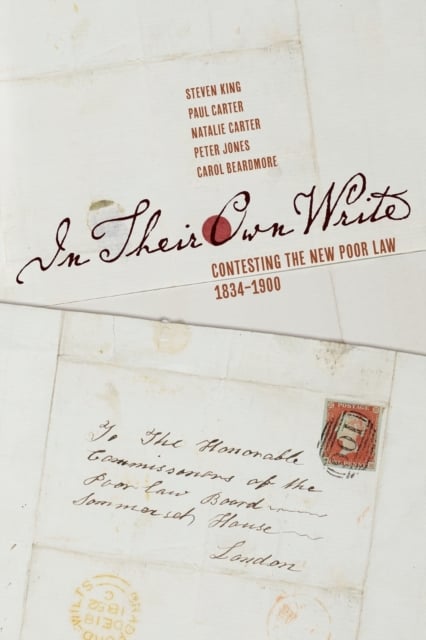


In Their Own Write
Contesting the New Poor Law, 1834–1900
Carol Beardmore
Steven King
Peter Jones
Paul Carter
Natalie Carter
Please be aware that holiday delivery is no longer guaranteed for orders placed today or later.
Few subjects in European welfare history attract as much attention as the nineteenth-century English and Welsh New Poor Law. Its founding statute was considered the single most important piece of social legislation ever enacted, and at the same time, the coming of its institutions – from penny-pinching Boards of Guardians to the dreaded workhouse – has generally been viewed as a catastrophe for ordinary working people.
Until now it has been impossible to know how the poor themselves felt about the New Poor Law and its measures, how they negotiated its terms, and how their interactions with the local and national state shifted and changed across the nineteenth century. In Their Own Write exposes this hidden history. Based on an unparalleled collection of first-hand testimony – pauper letters and witness statements interwoven with letters to newspapers and correspondence from poor law officials and advocates – the book reveals lives marked by hardship, deprivation, bureaucratic intransigence, parsimonious officialdom, and sometimes institutional cruelty, while also challenging the dominant view that the poor were powerless and lacked agency in these interactions. The testimonies collected in these pages clearly demonstrate that both the poor and their advocates were adept at navigating the new bureaucracy, holding local and national officials to account, and influencing the outcomes of relief negotiations for themselves and their communities.
Fascinating and compelling, the stories presented in In Their Own Write amount to nothing less than a new history of welfare from below.










